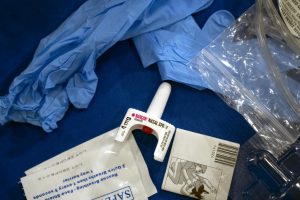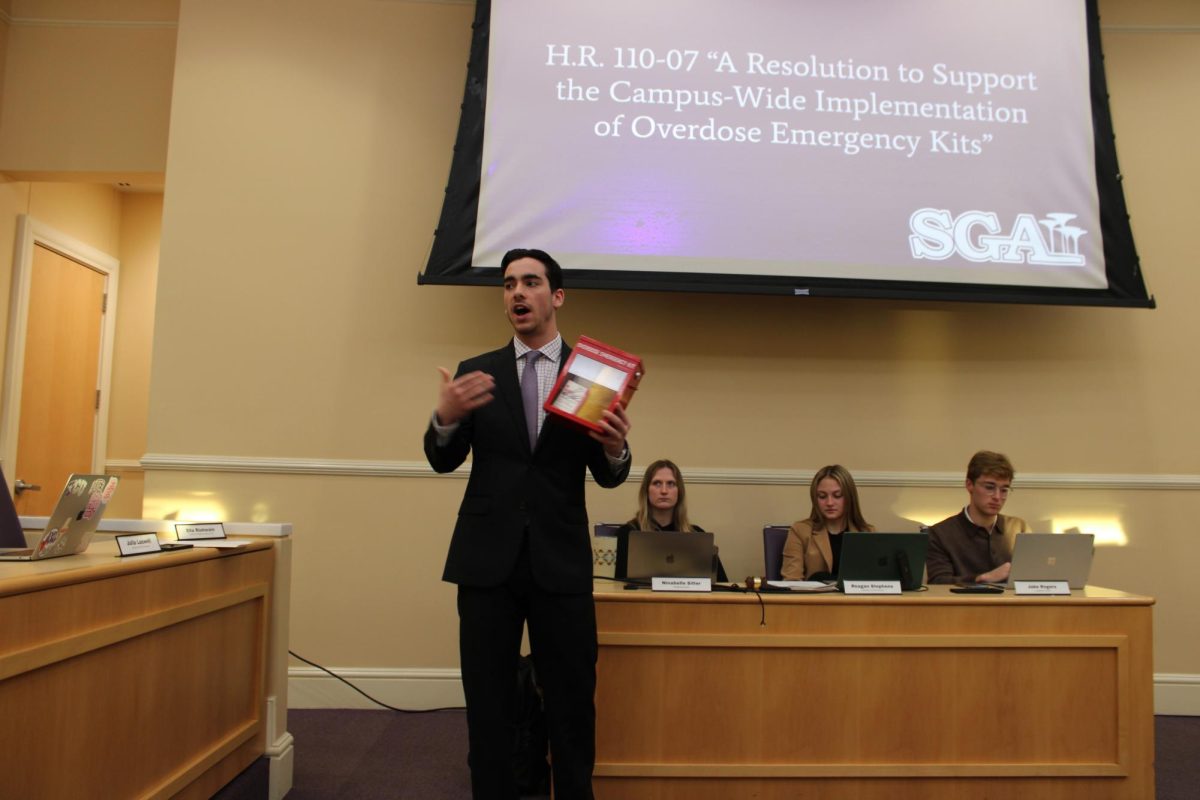
Members of the Student Government Association want TCU to become more proactive in trying to prevent opioid overdoses by placing emergency antidote kits around campus.
A resolution introduced by SGA Student Body President, Joseph Winick was unanimously approved at the Feb. 6 SGA meeting.
College-aged individuals have some of the highest drug use tendencies among drug abusers, with “persons between the ages of 18-25 at 39% compared to persons aged 26-29, at 34%,” according to the National Center for Drug Abuse Statistics.
Synthetic opioids, such as illicit fentanyl, are what cause most overdose deaths. Illicit fentanyl, 100 times stronger than morphine, has been found in heroin, cocaine, methamphetamine and counterfeit pills.
Just two milligrams of fentanyl is considered a lethal dose by medical research. Many people don’t know that they are ingesting fentanyl, and this leads to accidental poisoning, according to the Texas Health & Human Services Commission.
“The Overdose Emergency Kits Resolution is a collaborative initiative amongst several university entities, with SGA being just one of them,” Winick said. “For this project, I worked alongside student leaders and TCU administration to garner widespread approval, which predated my presentation to SGA.”
“SGA has officially supported the initiative by passing the resolution, representing the student body’s interests, and has communicated that support back to University Administrators,” Winick said.
The bill was passed with a 95% majority. Students can expect to see the kits as soon as next fall as “SGA supports T=CU’s administrative efforts in implementing the Overdose Emergency Kits, working through the summer to see the project come to fruition,” Winick said.
Naxalone, or Narcan, can “quickly restore normal breathing to a person whose breathing has slowed or stopped because of an opioid overdose,” according to the National Institute for Health.
It’s dispensed in a nasal spray or an injection that “can be injected into the muscle, under the skin, or into the veins.”
The spray has “no effect on someone who does not have opioids in their system.”
TCU will opt for the nasal spray.




